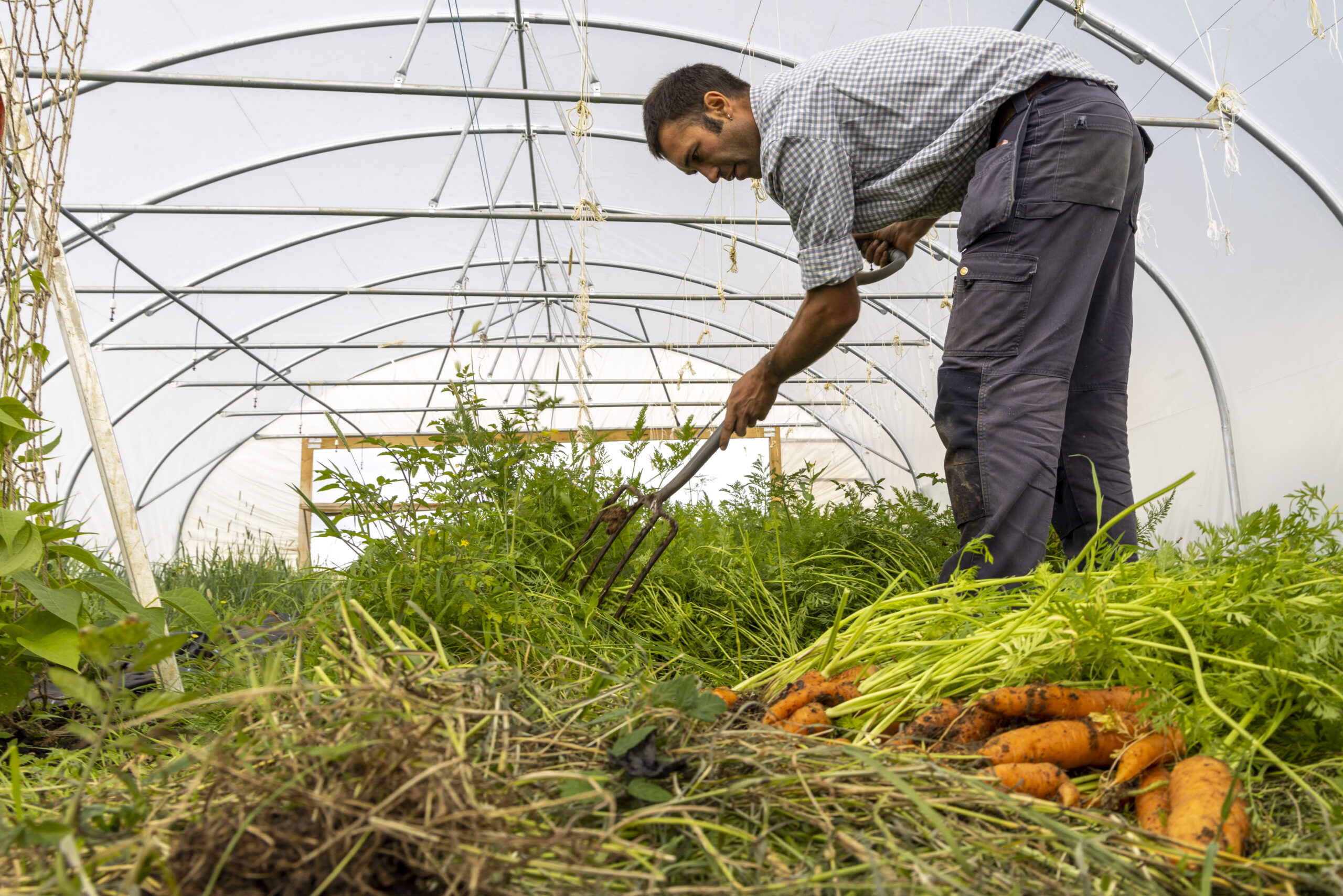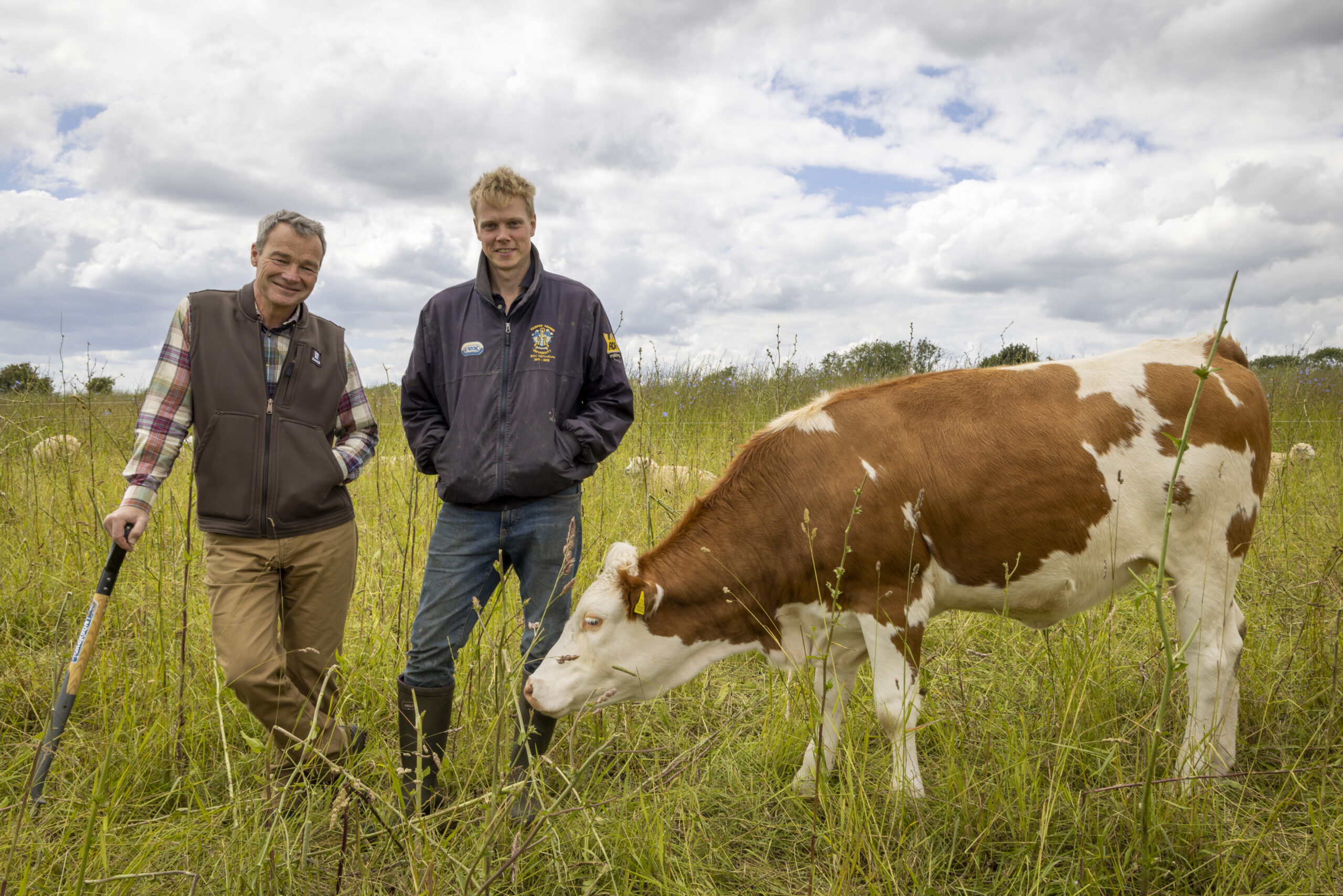Innovative skills
FarmED takes a conservation and rehabilitation approach to food and farming systems which has the potential to radically lower emissions linked to agriculture, protect and replenish biodiversity and restore the health of our soil and landscape.
Since its launch in 2013, over 100,000 have visited FarmED, whose facilities include an education, meeting and conference space, a farm to fork kitchen, large café and demonstration area as well as a micro dairy.
A kitchen garden produces in season food for 180 local families and a 20,000-tree planting initiative is showcasing how farmers can integrate trees to provide carbon sequestration within farmed landscapes.
Jonty Brunyee, FarmED’s head of sustainable agriculture and food systems, said: “Farmers need to change their mindset first. Most know what they should do, but don’t have the confidence to do it. We encourage people to start small and take small risks. It might take three or four years to see results. But once they’re on the journey, they get quite addicted.”
The farm grows a range of crops including barley and heritage wheat, with grassland managed by sheep and cattle. It also features a heritage orchard with 250 species of fruit trees, wildflower margins, an apiary and a natural flood management scheme, in collaboration with Cotswold Rivers Trust.

"Farmers need to change their mindset first. Most know what they should do, but don’t have the confidence to do it. We encourage people to start small and take small risks. It might take three or four years to see results. But once they’re on the journey, they get quite addicted"
A low impact approach
Their system also incorporates a low input approach by not using artificial fertiliser or sprays and it keeps tilling to a minimum. The price of fertiliser, most farm’s single biggest variable cost, has risen by 400% this year.
Bird surveys conducted at FarmED have shown that the diversity of species has risen significantly over recent years, from 44 different species recorded in 2014 to a total of 84 by 2020.
Founders, Ian and Celene Wilkinson, bought Honeydale Farm ten years ago and cite the growing public interest in food provenance, support for climate action from young people, including young farmers, and farmers’ experience of extreme weather such as flooding, as factors driving change.
Hallam Duckworth manages a micro dairy based at the farm, with cows producing milk, some of which is sold through a subscription service.
He said: “When I was at college, people weren’t talking about regenerative farming. My lecturers focussed on traditional farming methods but there are other options that are just as productive. But now that the subsidy system is changing, it’s a more appealing prospect.”
Following Brexit, the government is introducing a suite of policies that will change the way farmers receive subsidies. These will offer payments for protecting land and biodiversity above minimum legal requirements through a Sustainable Farming Incentive. These include supporting wildlife, floodwater management, soil improvement and tree planting to soak up carbon emissions.
Over 70% of British land is used for agriculture which is responsible for 12% of territorial greenhouse gas emissions. Food production has had a devastating effect on Britain’s biodiversity. Farmland birds have more than halved since 1970 while 15% of British wildlife species are now facing extinction.
A recent report, by WWF-UK, found that regenerative farming practices, such as ditching artificial fertiliser or boosting hedgerows, could create carbon savings equivalent to taking 900,000 cars off the road.
The movement is growing with large brands, including Nestle, PepsiCo, McDonalds and Waitrose, all announcing support for regenerative farming initiatives.

